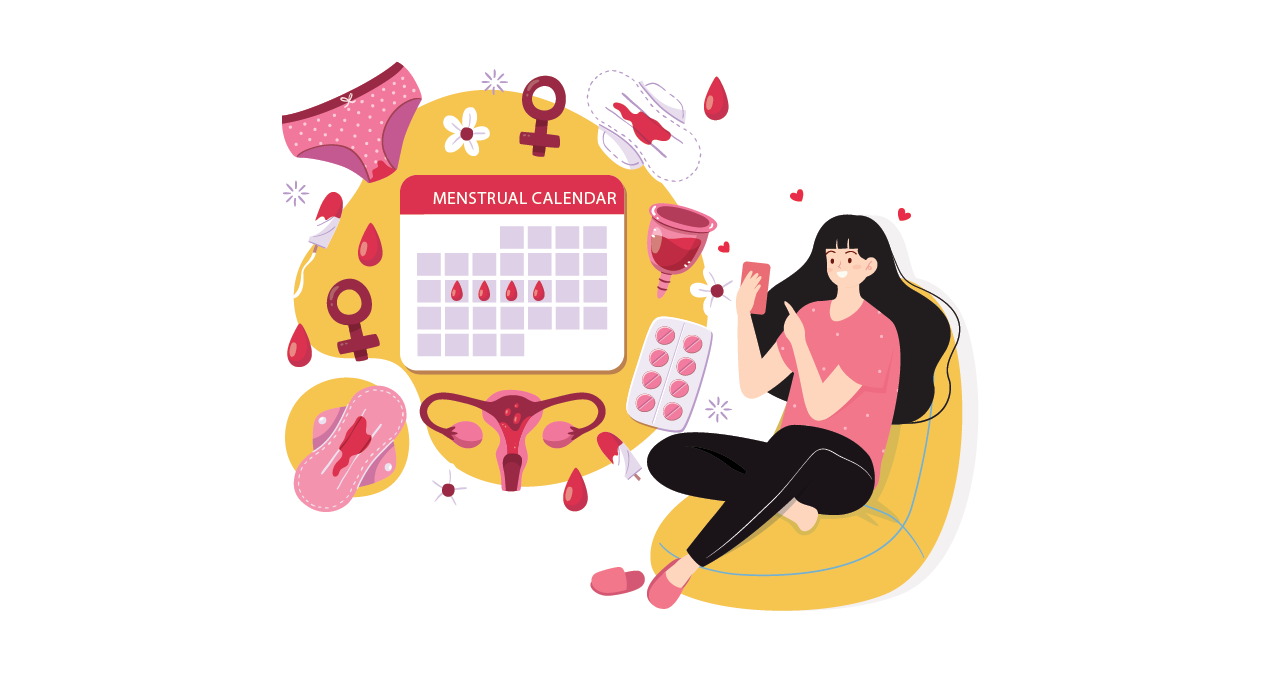
Why menstruation should be considered the fifth vital sign
by Liv Wage
At Perfect Fit, we are all about opening the discussion around menstruation to create a safe and open atmosphere for all menstruators. But what if we tell you that besides creating mental space, this might medically also be very beneficial?
In recent years, the medical community has started to consider adding menstruation as one of the vital signs. In this article, we will tell you more about what this entails, how this might be important and why learning about your menstrual health is so vital. .
What are vital signs?
Vital signs as a concept come from the medical world. They are measurements of basic physiological functions that help give insight into your overall health status. The four traditional ones are:
- body temperature;
- heart rate;
- breathing rate; and
- blood pressure.
They provide important information on how your body is doing and are widely used by healthcare providers to diagnose and treat all sorts of conditions.
Why is menstruation a vital sign for women’s health?
Menstruation is a complex bodily process that is orchestrated by a range of hormones and involves many different organs and systems in the body, such as your brain, gut and thyroid. Therefore, as a vital sign, it reflects not only the health of your reproductive system but can also give information on the other systems involved.
It’s a two-way street...
How your period might give insight into your health works in two ways. Firstly, irregularities around your period can tell you more about health problems. But, if there are other health conditions, your period can also be one of the first bodily functions to shut down. Let’s just say your period is quite sensitive! And she could use a listening ear.
Difficult periods are your body trying to tell you something and are mostly caused by hormonal imbalances. These hormonal imbalances, in turn, can be the result of many different things in the body. For example, irregular periods or heavy bleeding can be a sign of polycystic ovary syndrome (PCOS), a hormonal disorder that affects about 10% of reproductive-age women. PCOS increases the odds of infertility, diabetes, and heart disease. Menstrual irregularities can also be a sign of thyroid problems, anaemia, or other health conditions.
Secondly, external changes can also impact your menstrual cycles, and therefore give insight into your overall health status. For instance, stress, a bad diet, and changes in weight or exercise can quite rapidly lead to disruptions in your menstrual cycle (by messing up your hormones).
Why should we consider menstruation a vital sign?
We should take our periods seriously. The menstrual cycle is orchestrated by many different systems in the body, and disruptions can point to women’s health issues in all sorts of areas. Therefore, tracking our menstrual cycles and paying attention to any changes or symptoms that occur is essential. This can help us to better understand our own bodies and address any health concerns.
Our hormones should work with us, not against us.
From a health care perspective, menstruation as a vital sign also allows for better assessment of a person’s overall health. Asking about menstrual patterns in the consulting room can lead to better diagnoses, and in turn better treatments!
In line with Perfect Fit’s mission, seeing menstruation as a vital sign will also help towards the normalization of menstruation. The recognition of menstruation as an important bodily function can lead to increased education and awareness about menstruation: something we are all for! Let’s start listening to our bodies, track our cycle, and stay tuned for more articles to make you an expert on your own body. You deserve it!
This information is for education purposes only. If you think you might need medical advice, please reach out to a professional. This article is not intended to diagnose, treat, cure or prevent any condition. We leave that to the trained medics :)
